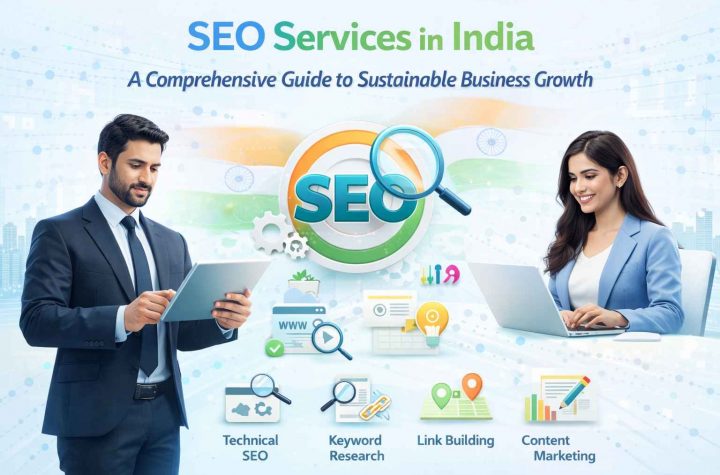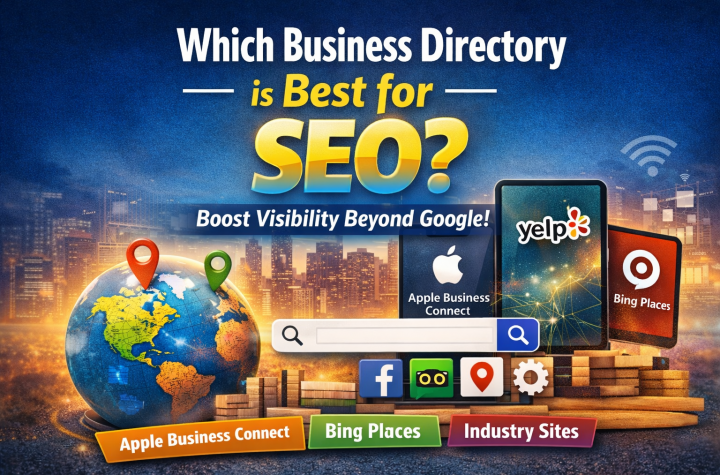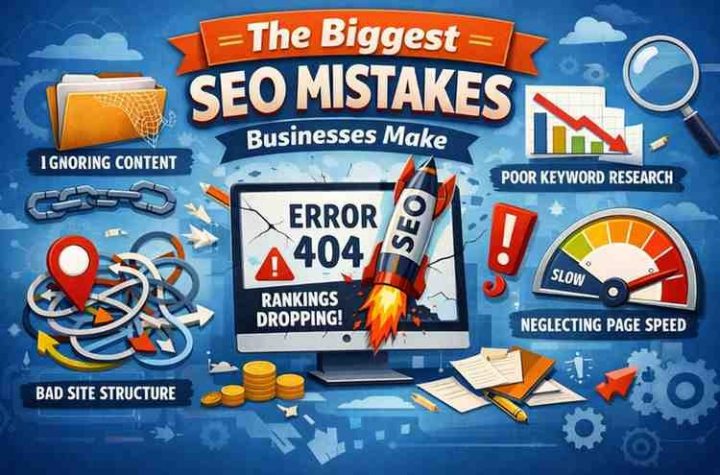
The way people are searching for queries and getting answers on Google has changed. These days, they don’t type queries into Google. Many users now get information via AI assistants or chatbots such as ChatGPT or Gemini. These systems avoid showing a list of links and often synthesize content from many sources and display concise answers.
A recent academic study on Generative Engine Optimization (GEO) examined how AI search favors earned media (third-party, authoritative sources) far more than brand pages. It is different from traditional SEO.
In simpler terms: getting cited by other trusted sites or having authoritative signals can boost your chances of appearing in AI-generated answers.
Additionally, in real-world SEO agency comparisons, some firms report that homepage traffic increased by 10.7% thanks to the inclusion of AI Overviews / LLM-driven features. It means your site can gain visibility not just via Google’s classic search, but also in AI results.
Because of this shift, expert SEO services must now include strategies to rank in AI environments and in traditional search. If you’re just doing old-style SEO, you risk being left out of the new answer engines. In this post,
I’ll walk you through how a professional SEO services approach, delivered via an SEO agency or in-house, can target GEO (generative engine optimization) smartly and deliver lasting results.
What is GEO and Why Does It Matter for AI Ranking?
What is GEO?
- GEO stands for Generative Engine Optimization. It refers to optimizing your content so that AI systems (ChatGPT, Gemini, Perplexity, etc.) pick your content or cite it when crafting responses.
- Unlike traditional SEO (which aims to get links and rankings in search results), GEO aims to influence AI answer engines—to become part of the “source material” or summary outputs.
- The new academic paper on GEO notes that AI search systems “exhibit a strong bias toward earned media (third-party, authority sites)” over brand content.
How do GEO and SEO overlap?
They are not totally separate. Good SEO practices (strong content, authority, structure) are still foundational. But GEO adds extra layers:
- Structuring content so that AI can parse it (e.g., clear headings, bullet lists, fact boxes)
- Earning mentions, citations, and backlinks from other authoritative sites
- Optimizing metadata, entities, and topical authority
- Monitoring how AI systems reference or ignore your content
A top SEO agency, such as Digital4design today, often includes GEO tactics in its service mix.
How Expert SEO Services Enable Smarter GEO Targeting?
Here are practical steps you or your SEO agency can take to succeed at GEO targeting:
1. Content design for AI
- Use clear, fact-dense content. AI systems prefer pages with facts, data, structured lists, and clear answers.
- Include question-and-answer blocks or FAQ sections. That helps AI detect exactly which lines respond to likely prompts.
- Use subheadings, bullets, and numbered lists — easy for models to scan.
- Cite your sources. AI systems often look for credible citations or signals of trust.
2. Topical authority and semantic coverage
- Don’t just optimize one page—cover the full topic cluster or theme deeply. Become the go-to resource in your niche.
- Use entity optimization: reinforce key concepts, brands, names, and relationships so AI recognizes your site as authoritative.
- Update your content frequently to stay fresh (timely updates help in AI ranking too).
3. Earned media & citations
- Get other trusted websites, publications, or blogs to link or reference you. AI systems often favor external signals of trust.
- Guest posts, expert quotes, press mentions: these help you become part of the “data network” AI systems draw upon.
4. Technical requirements
- Ensure your site is crawlable, fast, and mobile-friendly. Basic SEO still matters.
- Use structured data (schema markup) to help machines understand your information.
- Use clean headings, avoid duplicate content, and optimize canonical tags.
5. Monitoring AI presence
- Tools and audits that check whether your content is being cited or used by AI overviews (for example: checking which pages AI picks up). Some GEO-aware SEO agencies offer that.
- Track traffic uplift not just from search but from features like “AI result” or “chat answer referrals.”
- Track external mentions—are you being cited by new sources?
Professional SEO Services in Practice
When clients look for expert SEO services, they expect more than keyword stuffing or link building. Here’s how modern SEO services must evolve:
1. Blended SEO + GEO service
- Traditional SEO: on-page, off-page, technical
- GEO optimization: content tailored for AI, entity optimization, citation engineering
- Reporting: performance in both search and AI environments
2. Transparent methodology
- Show clients which pages are likely to be included in AI responses
- Provide clear plans: topical mapping, citation outreach, content refreshes
- Show metrics: how many AI features, how many citations, and organic traffic growth
3. Integration with broader digital marketing services
- Combine SEO with content marketing, PR, social media, and influencer outreach
- Use digital marketing services to amplify your content’s reach (e.g., social signals, mention campaigns)
- Use paid campaigns to promote strategic pages that you want AI to notice
4. Case studies & proof
- Show examples where clients gained AI visibility or traffic growth
- Use before vs after metrics: search rank, citations, traffic lift
Example of a GEO-Successful Strategy
Let’s imagine you run a business in eco-friendly packaging and you hire an SEO agency that offers professional SEO services with GEO integration. Here’s how they might roll out:
- Topic mapping: Identify core topics (e.g. “biodegradable packaging benefits,” “eco packaging suppliers in India,” etc.)
- Content creation: Produce clear articles with facts, stats, FAQs. E.g. “5 facts about biodegradable packaging + questions people ask.”
- Citation outreach: Pitch to environmental blogs, trade associations, and news outlets to reference your content.
- Structured markup: Add schema for FAQs, products, organization, and reviews.
- Monitoring: After 3 months, check if AI systems (ChatGPT, Google AI Overviews) are using your content in their answers or citing your site.
- Refinement & expansion: Expand to subtopics, build more in-depth pages, refresh old content.
Within 6–12 months, you might see:
- Increased organic traffic
- Some queries are now answered directly by AI with your content
- More backlinks and references
- Improved authority signals
This is exactly what expert SEO services should deliver in today’s landscape.
How to Choose the Right SEO Agency?
- GEO and AI expertise – Choose an agency that explicitly mentions experience with GEO, generative engine optimization, or AI-driven search rankings. This ensures they know how to optimize content for AI visibility.
- Case studies – Look for proof that the agency has helped clients gain AI visibility or citations from authoritative sources. Real-world examples show that their strategies work.
- Technical know-how – The agency should be skilled in structured data (schema), entity optimization, and clean site architecture. Also, there should be other technical SEO elements that help AI systems understand your content.
- Outreach and PR capability – They must be able to secure citations, press mentions, or content amplification on reputable sites. The reason is that AI systems favor content referenced by credible sources.
- Transparent reporting – Make sure the agency provides dashboards showing AI features, citations, traffic trends, and search rankings. All this helps measure noticeable results.
- Integration with digital marketing services – A strong agency should also offer content marketing, social media promotion, and PR campaigns that amplify SEO efforts and improve AI visibility.
Questions to ask before hiring:
- How will they help your content get cited by AI?
- Which metrics will they track?
- How will they earn external citations?
- How will they integrate GEO strategies with traditional SEO?
SEO & GEO Challenges and How to Overcome Them
1. Big brand bias
AI systems tend to favor big, established domains and authority sites. The GEO study noted a “big brand bias” that niche players must overcome.
Solution: Aggressively build citations, collaborate with niche publications, and highlight unique, data-rich content others will want to reference.
2. Rapid change in AI algorithms
AI ranking signals and citation logic may evolve quickly.
Solution: Work with a professional SEO services partner or an expert SEO services team that stays updated and iterates continuously.
3. Measuring AI impact
How do you know if you’re winning in AI ranking?
Solution: Use specialized tools or audits to detect if your pages appear in AI overviews or answer snippets. Monitor external mentions and citations. Combine that with traffic and engagement metrics.
Final Thoughts
The search landscape is shifting. AI and generative engines now act as an intermediary between many user queries. Traditional SEO is still important. However, it’s essential only for survival. GEO targeting is the additional element to ensure your business survives and thrives.
Expert SEO services today must combine content structuring, entity optimization, outreach, technical fluency, and AI awareness.
A modern SEO agency should offer this blend and have proven case studies. Choose partners who are transparent, metric-driven, and future-focused.




More Stories
SEO Services in India: A Comprehensive Guide to Sustainable Business Growth
Which business directory is best for SEO?
Types of SEO: What Every Business Should Know